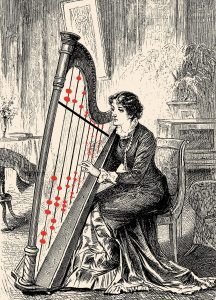John Lanchester in The New Yorker:
 What are you doing? I don’t mean what are you doing with your life, or in general, but what are you doing right now? The answer, in one respect, is simple enough: you’re reading this magazine. Obviously. From a certain economic perspective, however, you’re doing something else, something you don’t realize, something with a sneaky motive that you aren’t admitting to yourself: you are signalling. You are sending signals about the kind of person you are, or want to be. What’s that you say—you’re reading this in the bath, or on your phone in bed, or otherwise in private? Well, the same argument applies. You are acquiring the tools for a “fitness display.” This, the economist Robin Hanson and the writer-programmer Kevin Simler argue in their new book, “The Elephant in the Brain: Hidden Motives in Everyday Life” (Oxford), is an advertisement of “health, energy, vigor, coordination, and overall fitness.” Fitness displays “can be used to woo mates, of course, but they also serve other purposes like attracting allies or intimidating rivals.” So there you go: that’s what you’re doing, there in the bath with the magazine. Your rivals are right to feel intimidated.
What are you doing? I don’t mean what are you doing with your life, or in general, but what are you doing right now? The answer, in one respect, is simple enough: you’re reading this magazine. Obviously. From a certain economic perspective, however, you’re doing something else, something you don’t realize, something with a sneaky motive that you aren’t admitting to yourself: you are signalling. You are sending signals about the kind of person you are, or want to be. What’s that you say—you’re reading this in the bath, or on your phone in bed, or otherwise in private? Well, the same argument applies. You are acquiring the tools for a “fitness display.” This, the economist Robin Hanson and the writer-programmer Kevin Simler argue in their new book, “The Elephant in the Brain: Hidden Motives in Everyday Life” (Oxford), is an advertisement of “health, energy, vigor, coordination, and overall fitness.” Fitness displays “can be used to woo mates, of course, but they also serve other purposes like attracting allies or intimidating rivals.” So there you go: that’s what you’re doing, there in the bath with the magazine. Your rivals are right to feel intimidated.
Wait, though—surely signalling doesn’t account for everything? Hanson, in a recent podcast interview with Tyler Cowen, a colleague at George Mason University, was asked to give a “short, quick and dirty” answer to the question of how much human behavior “ultimately can be traced back to some kind of signalling.” His answer: “In a rich society like ours, well over ninety per cent.” He was then asked to cite a few voluntary human activities that “have the least amount to do with signalling.” The example Hanson came up with was “scratching your butt.”
That made me laugh, and also shake my head. Economists often do. I started reading up on economics twelve years ago. I was in the early stages of writing a novel about contemporary London, and had come to the realization that frequently hits you when you are writing fiction, which is that there is a story behind the apparent story.
More here.
